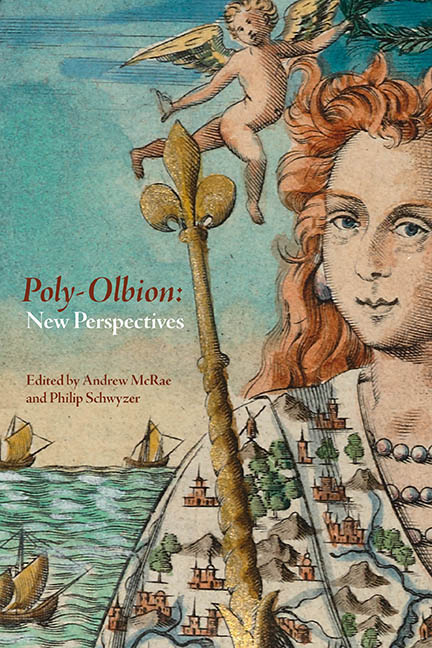1 - Drayton' Copious Chorography
Published online by Cambridge University Press: 27 March 2020
Summary
At nearly 15,000 lines Poly-Olbion is undoubtedly a long poem. Nonetheless, one of the curious things about it, as Richard Hardin noted forty years ago, is how often and how wildly that length has been exaggerated. The nineteenth-century historian Henry Hallam, for example, described it in his Introduction to the Literature of Europe (1837–9) as ‘a poem of about 30,000 lines in length’; in the same place, he also spoke of its ‘immense length’, which ‘deters the common reader’. A. L. Rowse similarly described it as a poem that ‘ambles along for 30,000 lines’, while his contemporary, the travel writer and topographer Alan Burgess, simply dismissed it as ‘much too long to read’. The perception of an overburdened, overlong poem has been hard to shake, even if most subsequent critics have been slightly more circumspect than either Hallam, Burgess, or Rowse. Oliver Elton's florid lament a century ago – ‘Alas! the great poem, like an overfreighted galleon, has foundered’ – thus still captures much of the popular perception of the work. Poly-Olbion, the narrative goes, is simply too long and a poem therefore doomed to popular and critical failure: an impression reinforced by Drayton's own querulous complaint in the preface to the second part about the ‘barbarous Ignorance, and base Detraction’ (p. 391) with which the first part met. As Cyril Brett put it in the introduction to his 1907 edition of the Minor Poems, ‘Drayton's own voluminousness has defeated his purpose, and sunk his poem by its own bulk’.
Such views are, in some ways, understandable. The catalogues and lists of names (historical, geographical, natural philosophical, and so on) that make up so much of Poly-Olbion do place considerable demands on the reader. This is not a poem that encourages casual engagement: it is not, in Drayton's own words, a poem for ‘this lunatique Age’, a time ‘when the Idle Humerous world must heare of nothing, that either savours of Antiquity, or may awake it to seeke after more’ (p. v*). But if such views are understandable, they also miss much of the point of the poem. For Drayton's whole purpose, as this chapter shows, was to be copious. His aim was comprehensiveness rather than compendiousness, and his work sets out to generate narrative abundance as much as to contain it.
- Type
- Chapter
- Information
- Poly-Olbion: New Perspectives , pp. 19 - 38Publisher: Boydell & BrewerPrint publication year: 2020

